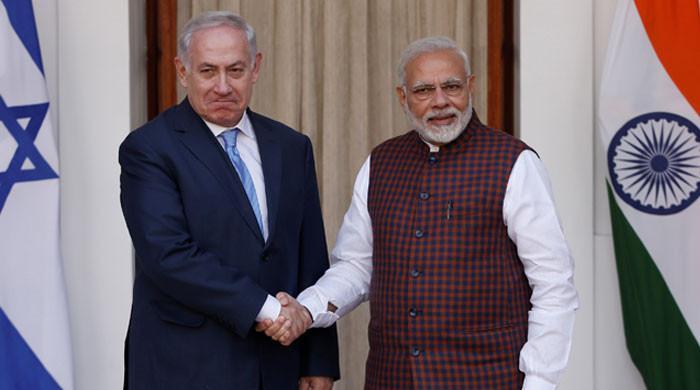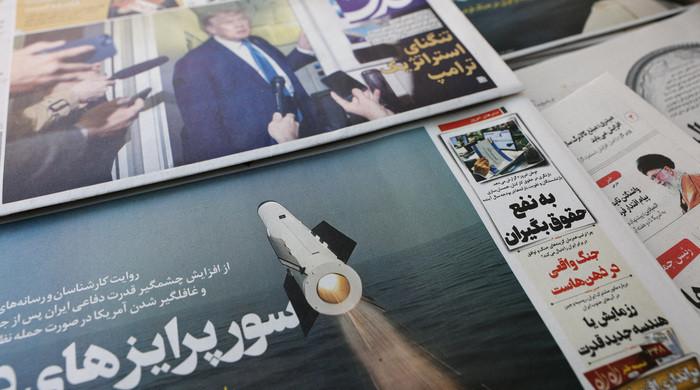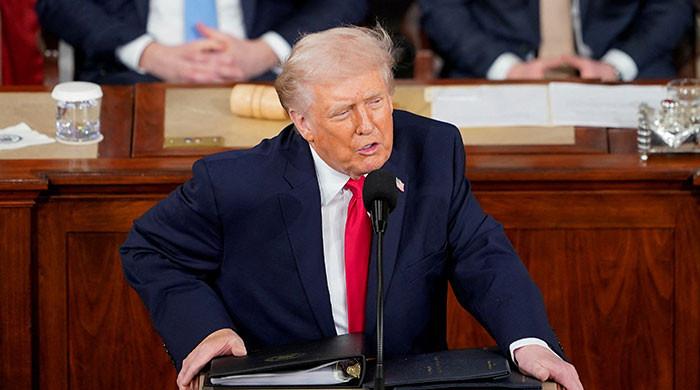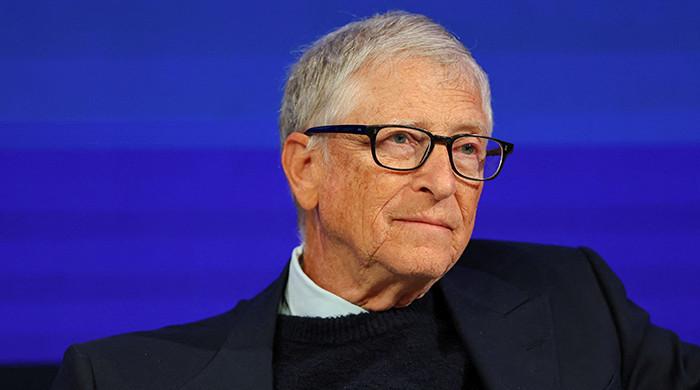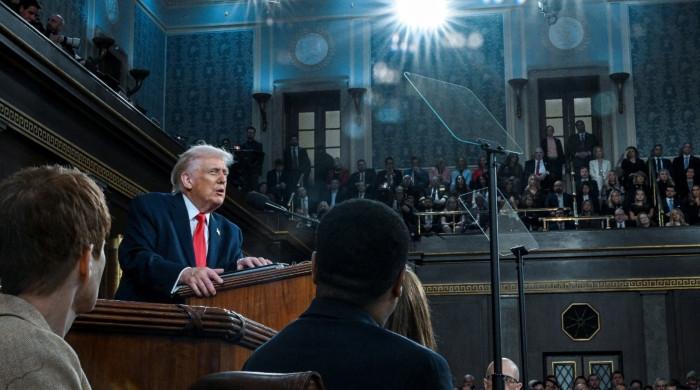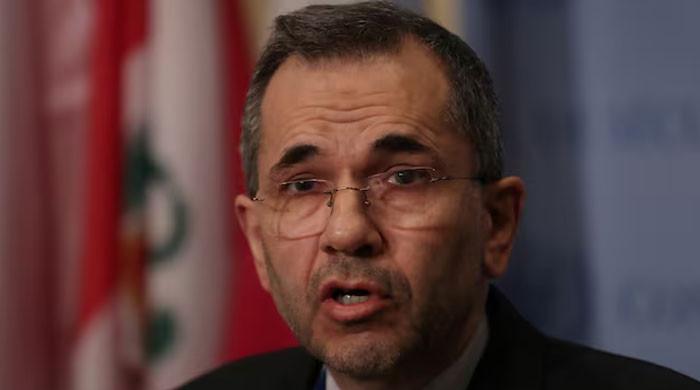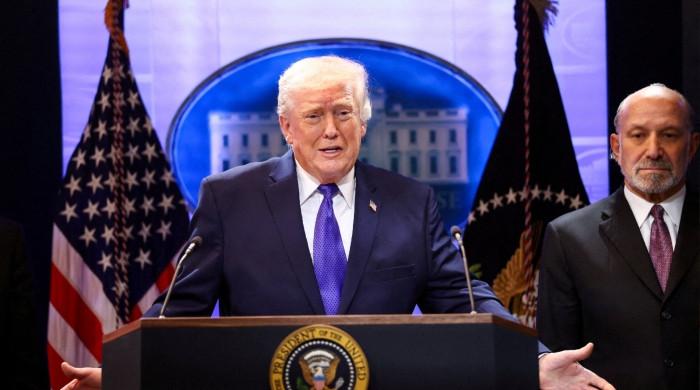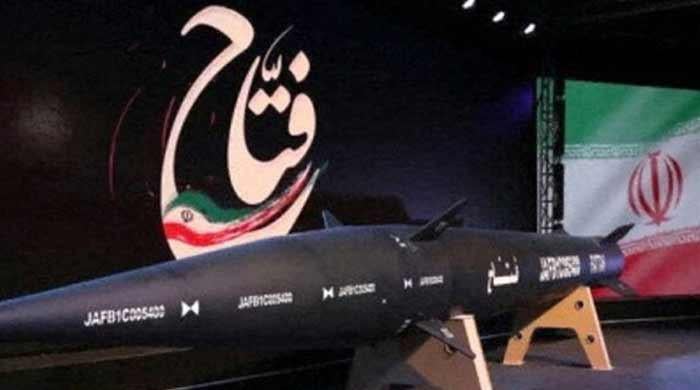US prevented Indian plot to murder Sikh leader Gurpatwant Singh Pannu on its soil: FT
Protest to New Delhi was allegedly lodged after Indian PM Narendra Modi's state visit to US in June
November 22, 2023
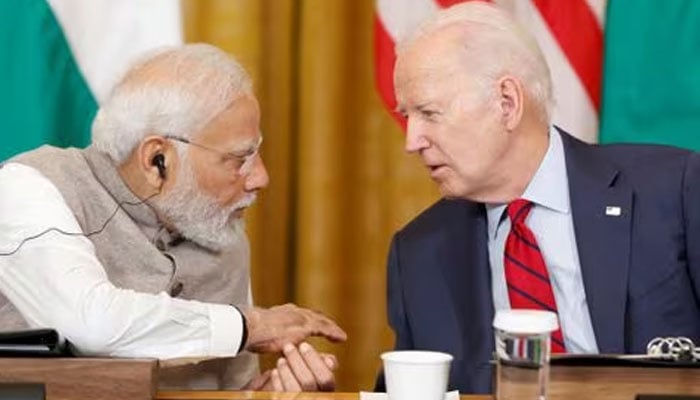
- Development comes on heels of Canada's assertion two months ago.
- US prosecutors filed sealed indictment against at least one suspect.
- Gurpatwant Pannun is identified as intended target of foiled plot.
LONDON: The US authorities thwarted an Indian conspiracy to assassinate the pro-Khalistan leader of Sikhs For Justice (SFJ) Gurpatwant Singh Pannun on American soil and issued a warning to India’s government over concerns it was involved in the plot, according to multiple people familiar with the case who spoke to the Financial Times (FT).
In a shocking story, the FT has revealed that the target of the Indian plot was Gurpatwant, an American and Canadian citizen who is general counsel for Sikhs for Justice (SFJ), a US-based group that is part of a movement pushing for an independent Sikh state called “Khalistan”.
The intelligence people familiar with the case, who requested anonymity because of the sensitive nature of the intelligence that prompted the warning, told FT the Indian government was behind the plot to kill Pannun, who has been running a worldwide campaign called Khalistan Referendum in which over 1.3 million Sikhs have voted so far.
The US sources didn’t tell the FT whether the protest to New Delhi led the plotters to abandon their plan, or whether the FBI intervened and foiled a scheme already in motion.
The US informed some allies about the plot following the murder of Hardeep Singh Nijjar, a Canadian Sikh separatist killed in Vancouver in June.
In September, Canada’s Prime Minister Justin Trudeau said there were “credible allegations” linking New Delhi to Nijjar’s fatal shooting.
The FT reported that one person familiar with the situation said the US protest was issued after Prime Minister Narendra Modi made a high-profile state visit to Washington in June.
The FT revealed that apart from the diplomatic warning, US federal prosecutors have filed a sealed indictment against at least one alleged perpetrator of the plot in a New York district court, according to people familiar with the case.
The US justice department is debating whether to unseal the indictment and make the allegations public or wait until Canada finishes its investigation into Nijjar’s murder, said the paper.
Further complicating the case, one person charged in the indictment is believed to have left the US, according to people familiar with the proceedings.
The US Justice Department and FBI declined to comment. The National Security Council said the US does “not comment on ongoing law enforcement matters or private diplomatic discussions with our partners”, but added: “Upholding the safety and security of US citizens is paramount.”
Washington shared details of the Pannun case with a wider group of allies after Trudeau went public with details of the Vancouver killing, the combination of which sparked concern among allies about a possible pattern of behaviour.
Contacted by the Financial Times, Pannun declined to say whether US authorities had warned him about the plot, saying he would “let the US government respond to the issue of threats to my life on American soil from the Indian operatives”.
“The threat to an American citizen on American soil is a challenge to America’s sovereignty, and I trust that the Biden administration is more than capable of handling any such challenge,” Pannun told the FT.
Pannun asked Indian officials this month by issuing a video in which he warned Sikhs not to fly on Air India because it would be “life-threatening”.
He told the FT he was not making a violent threat against the airline. Washington has urged India to help the Canadian investigation but has avoided being too critical of New Delhi in public over the Vancouver case.
Several people familiar with the debate inside the Biden administration said officials were aware that any public disclosure of the US plot, and Washington’s protest to New Delhi, would renew questions about India’s reliability as a trusted partner, said the FT.
The FT previously reported that Biden raised the Canadian allegations with Modi at the G20 summit in India in September. The White House declined to say whether Biden raised the Pannun case with Modi in September.
US Ambassador to Canada David Cohen also said in September that Ottawa received information about the Vancouver case from the intelligence-sharing network “Five Eyes”, which comprises the US, UK, Australia, New Zealand, and Canada.
Only a few months back, Pannun’s close associate and Khalistan Referendum Canada head Nijjar was killed on Canadian soil by Indian secret service agents. Canadian PM Justin Trudeau has directly blamed India.
45-year-old Nijjar was fatally shot outside the same Sikh temple in Surrey, a Vancouver suburb with a significant Sikh population.
Nijjar was the Chief Coordinator of the Khalistan Referendum campaign in Canada and a close associate of US-based Khalistani leader Gurpatwant.
Nijjar, Pannun, UK-based Paramjeet Singh Pamma, and others were designated terrorists by the Indian government in 2020. Nijjar was also President of Guru Nanak Sikh Gurdwara in British Columbia – Canada’s biggest Gurdawara.
The Khalistan Referendum voting campaign is being organised under the supervision of the independent Punjab Referendum Commission (PRC) which will announce the results when all phases are completed.
The voting started on October 31, 2021, from London, and has so far been held in several cities across the UK, Geneva Switzerland, Rome, and Milan (Italy), Australian cities of Melbourne, Brisbane, and Sydney; and the Canadian cities of Brampton, Mississauga, Malton (Ontario), and Vancouver (British Columbia).




